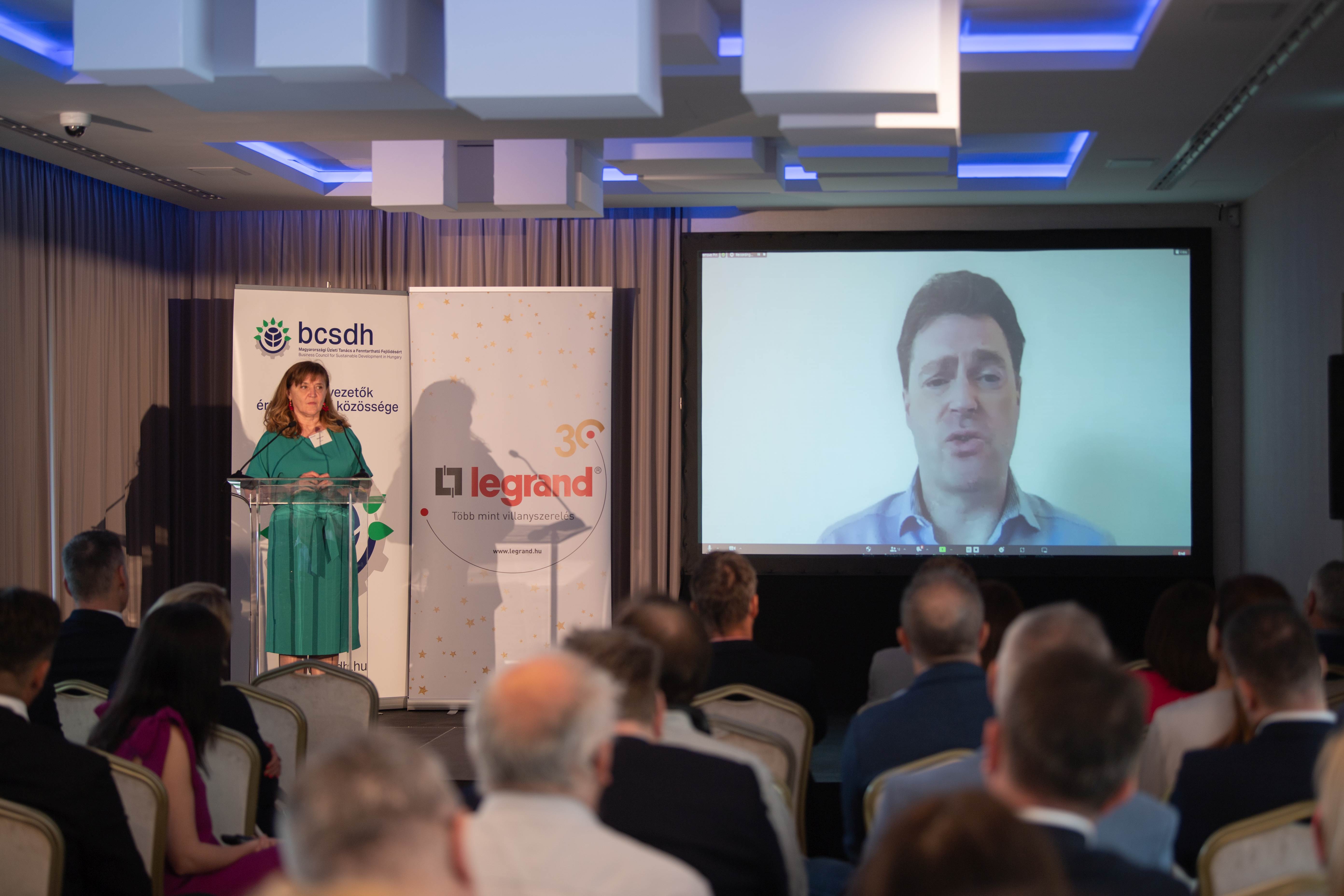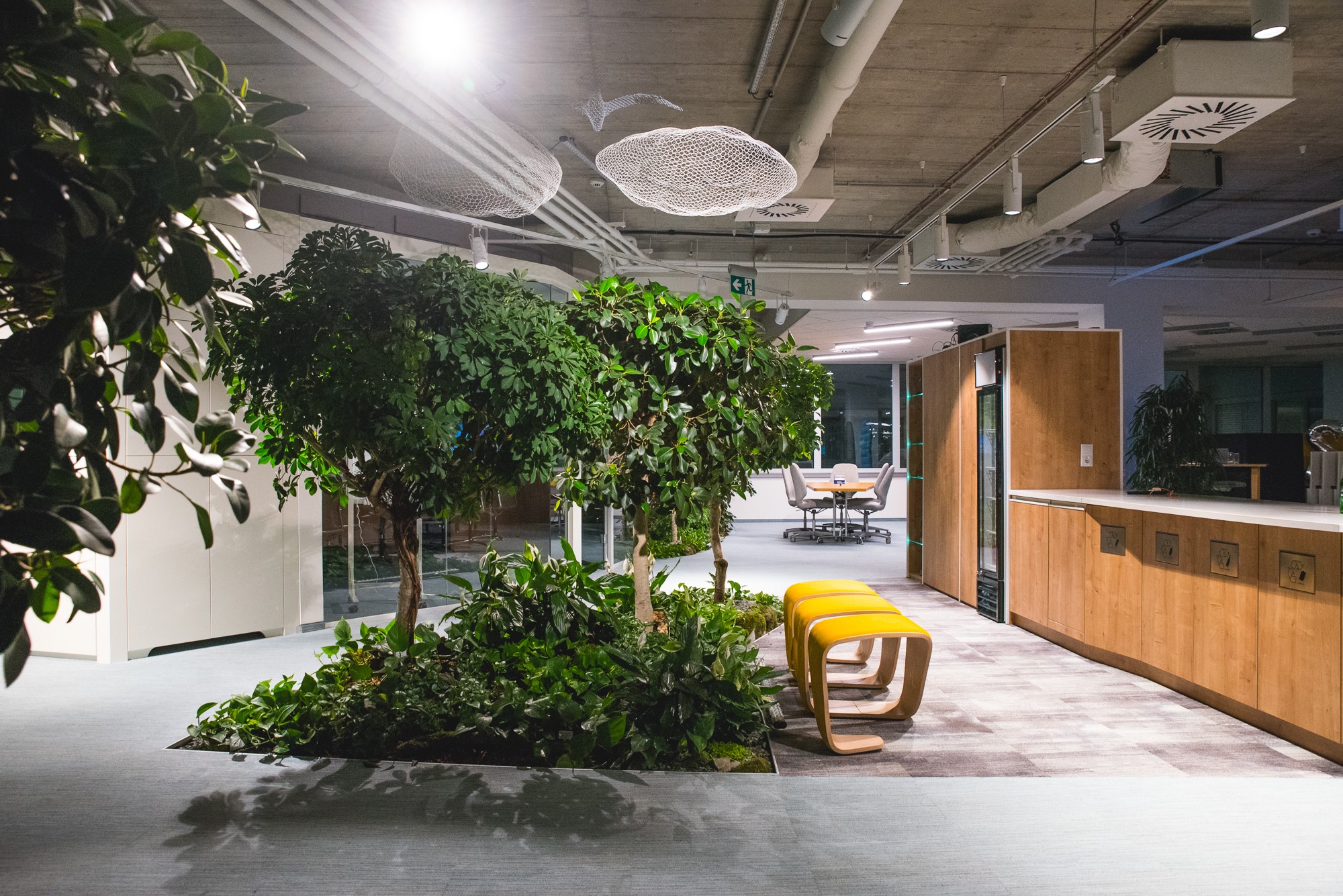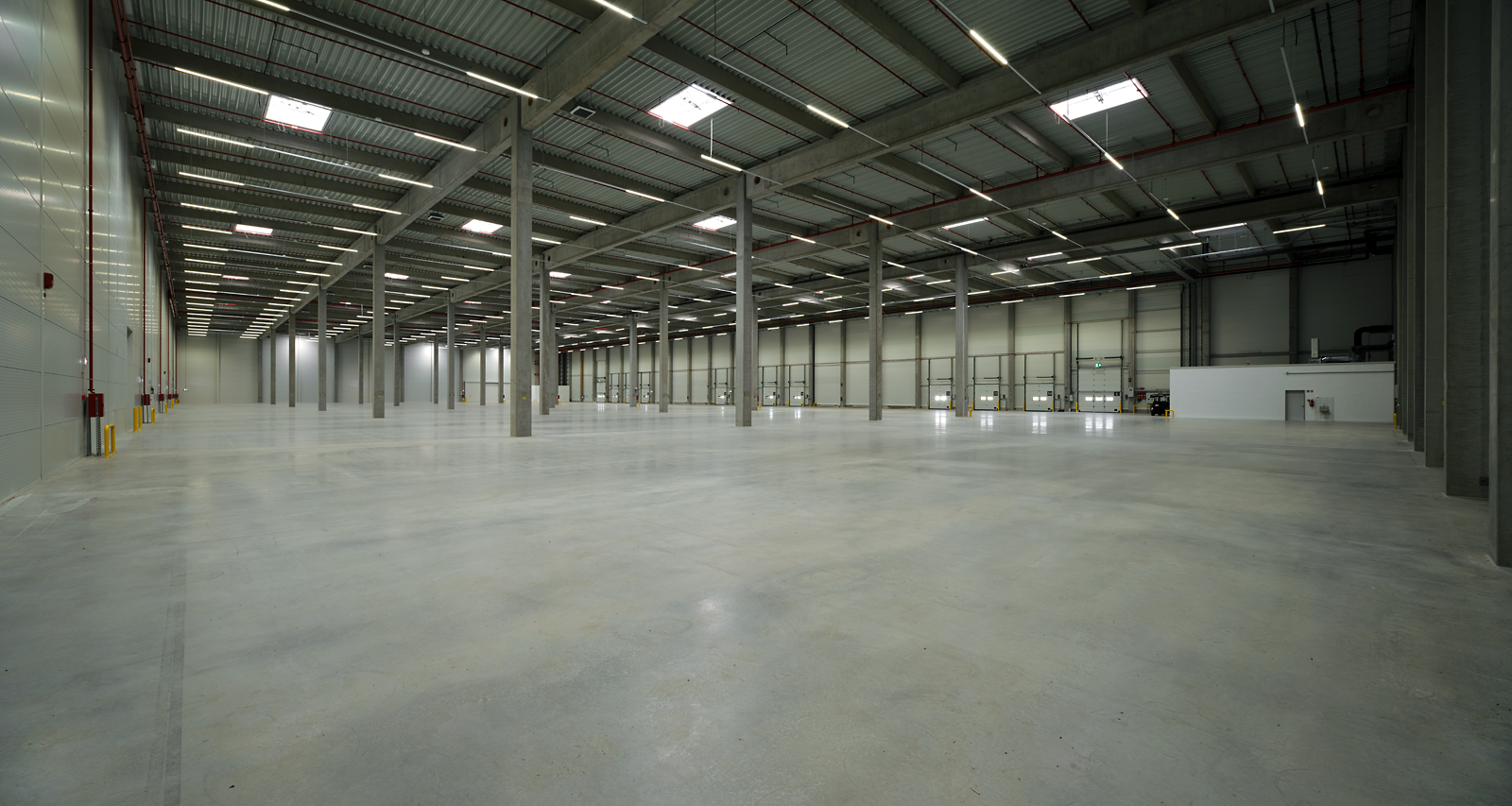Prof Mark Maslin: ‘It’s a life-and-death fight to save the Earth’

Irén Márta (left), managing director of the BCSDH, and Mark Maslin, who joined the meeting via a video link.
Members of the Business Council for Sustainable Development in Hungary were given a no punches pulled assessment of the environmental challenges ahead at the BCSDH Business Breakfast and Forum on May 10. The focus was on its “Time to Transform 2030” program, which aims for system-wide change.
“Climate change is now a matter of fact. Numerous data supports the claim that human impact has an unquestionable effect on this damaging process,” Professor Mark Maslin told delegates. “However, we have the tools and the opportunity to reverse these effects; we need to prepare for this brutal fight."
Maslin is a professor of Earth systems science at the University College of London and the author of the 2021 book “How to Save Our Planet: The Facts.” His BCSDH address called for action and promised to equip everyone with the knowledge they need to enable change.
Maslin is a leading scientist interested in understanding climate change and the significant challenges facing humanity in the 21st century. He has published more than 180 papers in journals such as “Science,” “Nature,” and “The Lancet.” He was the climatologist on the original 2009 Lancet report on climate change and global health and has been one of the authors of the annual Lancet Countdown reports since 2015.
According to him, it is time to face facts and realize that the relevant knowledge and technology are already in our hands and that companies must play a leading role.
The business breakfast of BCSDH, with its 120 member companies that account for 30% of Hungary’s GDP, was followed by a workshop with the participation of CEOs and experts to identify domestic goals, opportunities, and challenges in the critical areas of the council’s newly launched “Time to Transform 2030” program. The primary aim was to initiate collaborative thinking and define the domestic goals associated with the nine paths of the new program.
‘Time to Act’
“Now is the time to act. The pace and extent of change so far are less than expected,” Attila Chikán Jr., president of BCSDH, had emphasized earlier in his introductory remarks. “We still have a tight timeframe for the fundamental and immediate transformation of our systems, with companies playing a leading role,” he continued.
“Science has clarified what needs to be done; economic actors need to take the necessary steps to do it. Transformation requires a change of approach that fundamentally changes how business leaders view the short- and long-term. That’s what our ‘Time to Transform 2030’ program is all about,” Chikán explained.
According to Chikán, the world faces three critical challenges: a climate emergency, the loss of natural diversity, and growing social inequality. He quoted specific numbers to illustrate the threat: the global average temperature is already around 1.2°C above pre-industrial levels; 68% of wildlife has already been lost; the wealthiest 1% of society own 44% of global wealth, and the poorest 50% barely 2%.
“Climate data is disappointing, but no matter how bad the environment is, [the situation] can be reversed, and we have all the tools at hand,” Maslin told his predominantly business audience. “These changes must start from bringing individuals together. When multiplied by millions of people, small deeds can change the world.”
His message was, at times, blunt. “It is a life-and-death struggle for our planet with ourselves for ourselves. Individuals, governments and companies need to work together. In addition to accelerating the process by innovating and transforming their own activities, businesses need to help change individuals, change consumer habits, [and] help them play a role in the fight against climate change, support local communities, and create platforms,” Maslin insisted.
‘Last Chance’
According to preliminary data from the ongoing BCSDH “Corporate Maturity Survey,” the responding organizations intend to increase their commitment to net-zero greenhouse gas emissions and biodiversity by 2025. At the same time, sustainability indicators are incorporated into management to a lesser extent than the development of this vision, he warned. In other words, economic considerations still often override sustainability needs.
László Károlyi, CEO of Legrand Zrt., host of the event, and the current president of the Hungarian-French Chamber of Commerce and Industry told the meeting, “It’s time to do more than just talk about sustainability, carbon neutrality. This is our last chance not to suffer the harshest effects of climate change.”
He acknowledged there would be challenges ahead. “It is not easy for a company to operate profitably and sustainably at the same time. In the short run, these solutions may be more expensive, but in the long run, these transformations will make companies more resilient and competitive,” he said.
“The goal is to preserve the Earth for future generations, and we can only succeed in that together, bringing together consumers, business leaders and government decision-makers,” Károlyi added.
Irén Márta, managing director of the BCSDH, told the forum,“The goals of our vision are still achievable. But the next eight years are critical, and every single day counts. This decade of the BCSDH is defined by the ‘Time to Transform 2030’ program, which builds on the results of Action 2020. The three key elements of the program are the nine Paths and the Action Plan to 2050, the high level of commitment of our members, and the maximum transparency that embraces them,” she said.
This article was first published in the Budapest Business Journal print issue of May 20, 2022.
SUPPORT THE BUDAPEST BUSINESS JOURNAL
Producing journalism that is worthy of the name is a costly business. For 27 years, the publishers, editors and reporters of the Budapest Business Journal have striven to bring you business news that works, information that you can trust, that is factual, accurate and presented without fear or favor.
Newspaper organizations across the globe have struggled to find a business model that allows them to continue to excel, without compromising their ability to perform. Most recently, some have experimented with the idea of involving their most important stakeholders, their readers.
We would like to offer that same opportunity to our readers. We would like to invite you to help us deliver the quality business journalism you require. Hit our Support the BBJ button and you can choose the how much and how often you send us your contributions.









